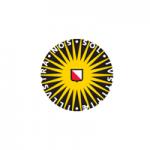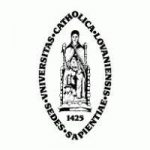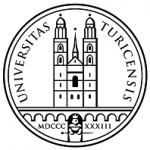项目介绍
Agent-based models (ABM) are powerful tools to assess the impact of interventions on human exposure to environmental factors, like air pollution or heat. They help us understand the manifold social and environmental implications when reimagining our cities as healthy environments. Would you like to dive into this? Join us as a PhD candidate!
Your job
This PhD project aims to advance spatial ABM modeling for human environmental exposure assessment in health research by addressing a key limitation: the lack of generalisable frameworks. While ABMs are uniquely suited to capturing complex human-environment interactions, current models are often developed in isolation, limiting their adaptability across different exposure scenarios. To overcome this, the project will develop a smart, adaptable spatial ABM (S-ABM) framework that translates spatial behavioral theory into practical simulation tools. By designing reusable model components for behaviours and environmental exposures, the framework will enable the simulation of diverse exposure and intervention scenarios, from active exposures like physical activity to passive ones such as air pollution. Additionally, it will incorporate standardised uncertainty modelling approaches, ensuring valid and scalable exposure assessments.
As a PhD candidate, you will design and reflect on geographic information methods for exposure science and epidemiology from a geo-computational perspective. The evaluation of effectiveness of spatial interventions requires research methods different from the traditional ones in epidemiology, since randomised controlled trials – the gold standard to assess causality in the medical field – is often not feasible. Using ABM for human environmental exposure assessment is technically more sophisticated than traditional health impact assessments. A key challenge is therefore to develop generalisable frameworks that enable the reuse of model components for diverse kinds of exposures. The objective is to develop such a framework and to demonstrate its applicability in several health intervention scenarios. In this project, you will:
- develop an S-ABM Framework on exposure intervention modeling – a conceptual model and architecture for simulating spatial behavioural exposures, integrating environmental factors, decision-making agents, and necessary data sources;
- design and implement intervention scenarios – define resolution levels and useful data sources;
- test with various case studies – apply the framework to at least two policy-relevant scenarios (e.g., food environment and passive exposure/air pollution ABM) to ensure generalisability;
- assess uncertainty and complexity – develop sensitivity analysis and error propagation methods to quantify uncertainty and non-linearity in model outputs;
- ensure reusability – evaluate how the framework structures case studies, supports code and data reuse, and assesses intervention effectiveness.
The position is part of Exposome-NL external link, a Dutch consortium of over fifty scientists from different disciplines, universities and medical centers that systematically sequences the environmental factors influencing our health. You will work in a multi-disciplinary team consisting of geo-informaticians from the Faculty of Geosciences and epidemiologists from Utrecht University, as well as with other ABM model developers in Europe. You will closely cooperate with a postdoc who has developed an S-ABM model in the Exposome-NL project.
Your qualities
- At the start of the position, you have an MSc degree in geoinformatics, geographic information science, computer science, (spatial/geographic) data science, or in a thematic domain, such as epidemiology, food science or health geography, with a considerable component of computational or data science.
- You have a strong interest in behavioural modelling and exposure science.
- You have a strong interest in the design of conceptual as well as computational models, in particular, in the theory of geographic information and exposure ABM.
- You have experience in handling spatial data and programming (agent-based) models, preferably in Python.
- You have experience in the design of conceptual models, including architectural diagrams, information ontologies, database schemas, and causal models for reusability and interoperability.
- You are proficient in English.
- You have strong communication skills.
- You are able to work independently as part of an interdisciplinary research team.
Our offer
- A position for one year, with an extension to a total of four years upon a successful assessment in the first year, and with the specific intent that it results in a doctorate within this period;
- a working week of 38 hours and a gross monthly salary between €2,901 and €3,707 (salary scale P under the Collective Labour Agreement for Dutch Universities (CAO NU));
- 8% holiday pay and 8.3% year-end bonus;
- a pension scheme, partially paid parental leave and flexible terms of employment based on the CAO NU.
In addition to the terms of employment external link laid down in the CAO NU, Utrecht University has a number of schemes and facilities of its own for employees. This includes schemes facilitating professional development external link, leave schemes and schemes for sports and cultural activities external link, as well as discounts on software and other IT products. We also offer access to additional employee benefits through our Terms of Employment Options Model. In this way, we encourage our employees to continue to invest in their growth. For more information, please visit Working at Utrecht University external link.
About us
A better future for everyone. This ambition motivates our scientists in executing their leading research and inspiring teaching. At Utrecht University external link, the various disciplines collaborate intensively towards major strategic themes external link. Our focus is on Dynamics of Youth, Institutions for Open Societies, Life Sciences and Pathways to Sustainability. Sharing science, shaping tomorrow external link.
Utrecht University’s Faculty of Geosciences external link studies the Earth: from the Earth’s core to its surface, including man’s spatial and material utilisation of the Earth – always with a focus on sustainability and innovation. With 3,400 students (BSc and MSc) and 720 staff, the faculty is a strong and challenging organisation. The Faculty of Geosciences is organised in four Departments: Earth Sciences, Human Geography & Spatial Planning, Physical Geography, and Sustainable Development.
More information
For more information, please contact please contact Dr Simon Scheider external link at s.scheider@uu.nl.
Candidates for this vacancy will be recruited by Utrecht University.
Apply now
As Utrecht University, we want to be a home external link for everyone. We value staff with diverse backgrounds, perspectives and identities, including cultural, religious or ethnic background, gender, sexual orientation, disability or age. We strive to create a safe and inclusive environment in which everyone can flourish and contribute.
To apply, please send your curriculum vitae, including a letter of motivation, via the ‘apply now’ button.
The first round of interviews will take place in June 2025. The aimed starting date is 1 September 2025.
The application deadline is 16 May 2025.
联系方式
电话: +31 (0)30 253 35 50相关项目推荐
KD博士实时收录全球顶尖院校的博士项目,总有一个项目等着你!





